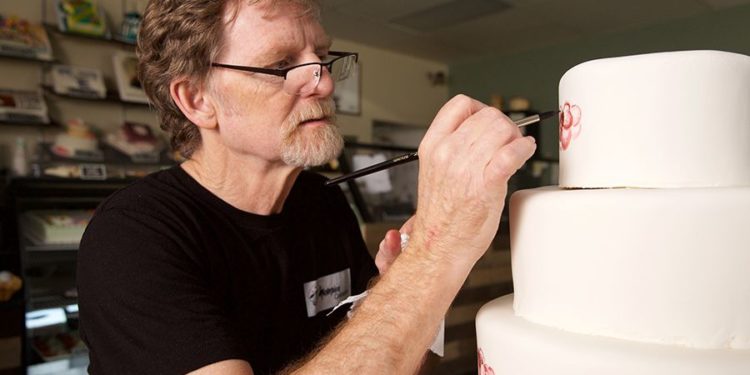The use of the plaintiff’s transgender pronouns was also an issue in the appeal. Schutz rejected arguments that the trial court showed hostility toward the religious beliefs of Phillips and his wife, Debra.
“The trial court initially indicated it would not force parties in the case to use pronouns they found offensive,” the court’s decision continued. “However, the court noted that Ms. Phillips’ decision to avoid using feminine pronouns when referring to Ms. Scardina was relevant to the credibility of her suggestion that Scardina’s transgender status was unrelated to the decision not to make the requested cake.”
“We do not discern any suggestion of hostility in the court’s statements,” the ruling said.
Phillips has been involved in legal trouble for more than a decade in cases that implicate free speech and the place of Christians in public life as changes to anti-discrimination laws provide more avenues for lawsuits against them.
In 2018, Phillips won a six-year legal battle in the U.S. Supreme Court after he faced legal action for declining to bake a cake to celebrate a same-sex couple’s union. The court’s 7-2 decision did not rule on the free speech claims or the claims of discrimination on the basis of sexual orientation. Rather, it found that the Colorado Civil Rights Commission proceedings against the baker “showed elements of a clear and impermissible hostility toward the sincere religious beliefs motivating his objection.”
In June 2017, the day the U.S. Supreme Court agreed to hear Phillips’ previous case, Scardina contacted Masterpiece Cakes and requested a cake with a pink and blue design to celebrate a gender transition. The bakery declined the order from Scardina, setting in motion another legal and political dispute.
Amid the publicity surrounding his case, Phillips’ cakeshop received multiple requests for cakes celebrating Satan, using satanic symbols, requesting sexually explicit content, or promoting marijuana use, Alliance Defending Freedom’s case briefing said. Scardina had requested at least one of these satanic-themed cakes, according to the initial brief his attorneys filed on his behalf.
In an early deposition for the case, Scardina said: “I think I wanted him to make me a cake with an image of Satan smoking a joint.”
The Colorado Civil Rights Commission accepted Scardina’s complaint in June 2018, then dropped the complaint after Phillips’ countersuit resulted in an agreement with the state that left open a civil lawsuit from Scardina.
John McHugh, a lawyer representing Scardina, said Thursday that Phillips and his cakeshop “just object to the idea of Ms. Scardina wanting a birthday cake that reflects her status as a transgender woman because they object to the existence of transgender people,” the Associated Press reported.
Alliance Defending Freedom said in a statement that Phillips “works with all people and always decides whether to take a project based on what message a cake will express, not who is requesting it.”
(Story continues below)
The legal group is pursuing another case in Colorado, 303 Creative v. Elenis, representing a graphic and website designer Lorie Smith. Smith is concerned that Colorado law can compel her and her art studio to create designs that violate her beliefs about marriage.
Credit: Source link




